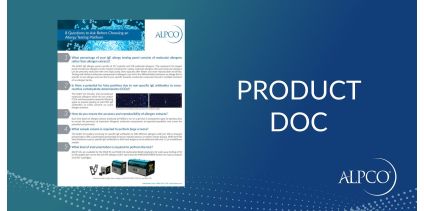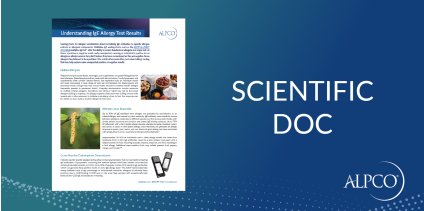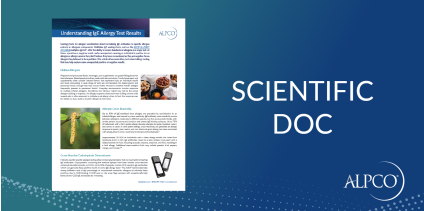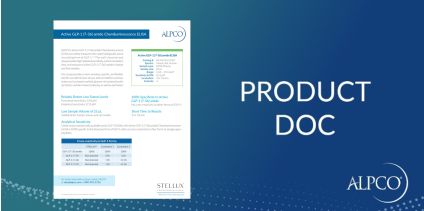Infliximab Drug Level ELISA
$1,106.00
Catalog
30-INLHU-E01
The Infliximab Drug Level ELISA is intended for the quantitative determination of free Remicade® concentration in human serum and EDTA plasma. Health Canada Licensed , Research Use Only. Not for Use in Diagnostic Procedures.
Species
Human
Regulatory Status
Health Canada Licensed, Research Use Only. Not for Use in Diagnostic Procedures.
Product Distribution
Available in North America Only
Range
4.15 - 225 ng/mL
Sensitivity
3.52 ng/mL
Sizes
96 Wells
Sample Types
EDTA Plasma, Serum
Inc Time Hour
2
Inc Time Minute
20
Inc Time Overnight
No
Inc Time See Protocol
No
Sample Size
100
Detection
Colorimetric
This ELISA is designed to determine the quantity of free infliximab (therapeutic antibody against TNF-alpha: Remicade, Remsima, Inflectra) in EDTA plasma or serum samples. In a first incubation step, the free infliximab from the sample is bound to the specific monoclonal antiinfliximab antibody coated on the plate. To remove all unbound substances, a washing step is carried out. In a further incubation step, peroxidase-labeled antibody is added. Tetramethylbenzidine (TMB) is used as a peroxidase substrate. Finally, an acidic stop solution is added to terminate the reaction. The color changes from blue to yellow. The intensity of the yellow color is directly proportional to the concentration of free infliximab in the sample. A dose response curve of the absorbance unit (optical density, OD) versus concentration is generated, using the values obtained from the standard. The concentrations of free infliximab in the samples are determined directly from this curve.







